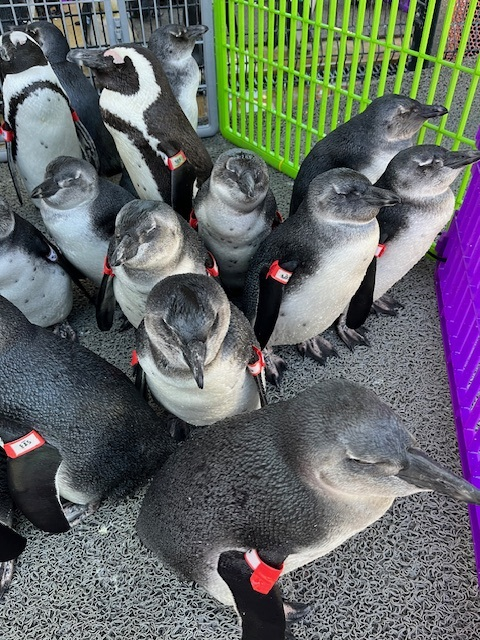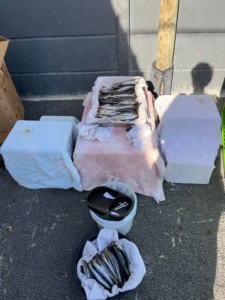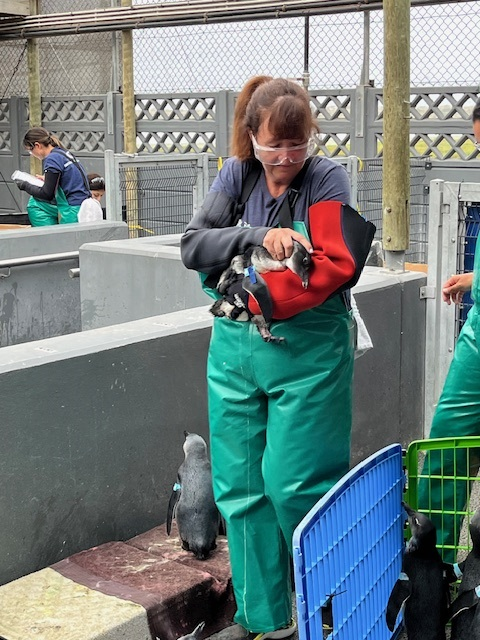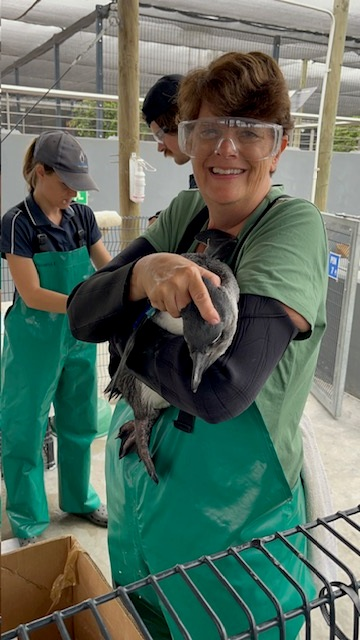Zoo New England is committed to conservation – we have a wide portfolio of local and international conservation projects that you’ve seen profiled here on the blog. What many may not know is that we also have a special scholarship program for staff to pursue their own conservation projects, education opportunities, research initiatives and other wildlife-focused efforts, in memory of our former zookeeper Jonathan Gilmour.
Paige Hendricks Ransford is one of this year’s Gilmour Scholarship awardees and recently travelled to South Africa with colleague Catherine Kane to volunteer for SANCCOB (Southern African Foundation for the Conservation Of Coastal Birds) and assist with African penguin conservation efforts there. Paige and Cathy share the following story of their experience:
“Our two weeks volunteering at SANCCOB was truly inspiring in many ways. The work was incredibly hard and exhausting in a good way. We were so impressed with the dedication, teamwork, and work ethic of the staff and the other volunteers. On any given day there at least 350 endangered African penguins, cormorants, gulls, and other seabirds that need medical care, feeding, and enrichment.


The days started with food preparation, such as cutting fish, making fish formula, and prepping medication. Each bird has a specified diet – some get vitamins in their fish, some get formula and electrolytes through a tube, and medications for parasites, foot issues, pain, among other things. Quite a few of the penguins had leg or feet amputations because of seal, shark, and mongoose attacks. Many of the birds were emaciated because of scarcity of food due to commercial overfishing.
After feeding, it was time to thoroughly clean the different enclosures. Contrary to popular belief, wild penguins are not at all cuddly! They have tremendously strong flippers and beaks. While cleaning the enclosures or the pools, there was always the chance we would be pecked. Oilskins and heavy gloves and armbands were a necessity. A lot of the penguins were very curious about the crocs we were wearing and could pinpoint the holes in them to peck through.
On the last day, we were trained to pick up the penguins. The staff and other volunteers made it look so easy, and it definitely was not. Human interaction is limited, except for feeding and medical care, so the penguins can be quite “spicy” when handled. They need to stay wild so when they are released they can protect themselves against humans and other predators. It was such an honor for us to volunteer at SANCCOB, with many other volunteers from around the world and work with the amazing staff and the majestic penguins. It was an experience that we will never forget, especially when we had the privilege of releasing 10 penguins back into the wild.”


